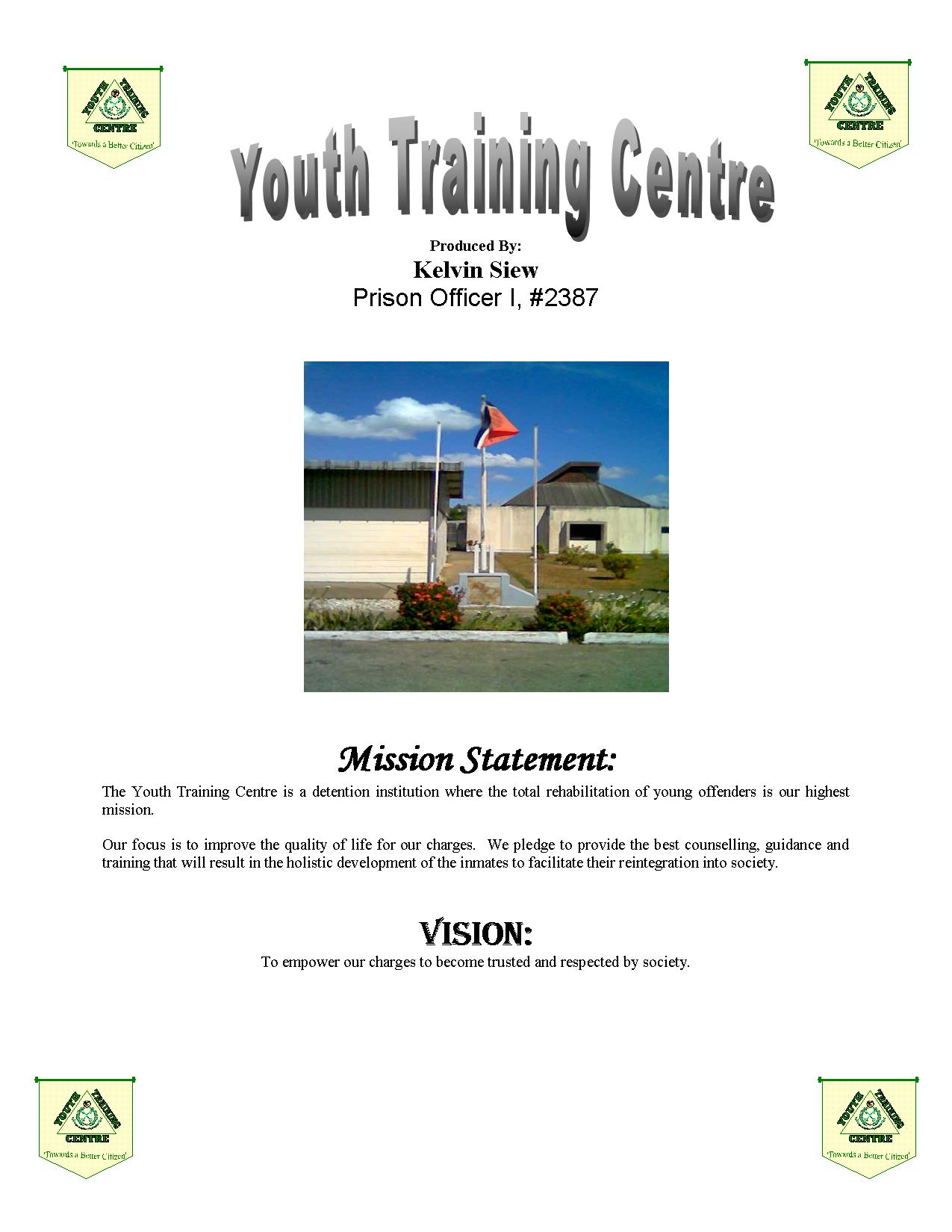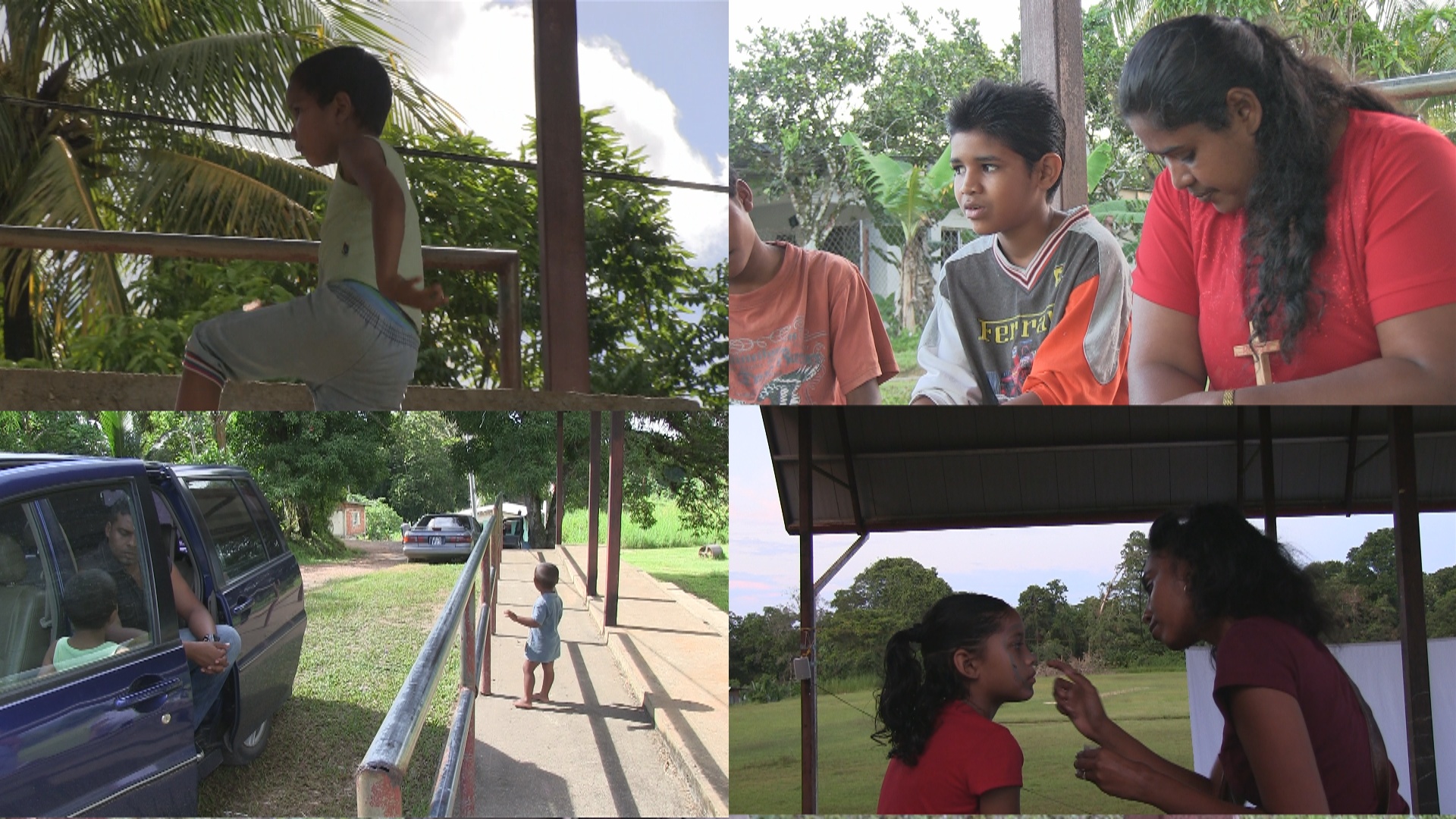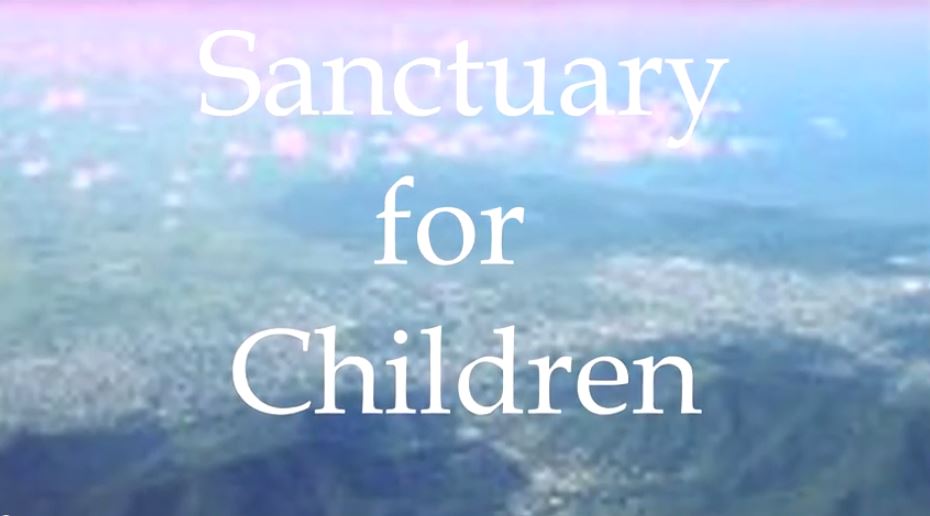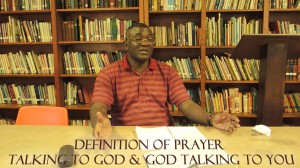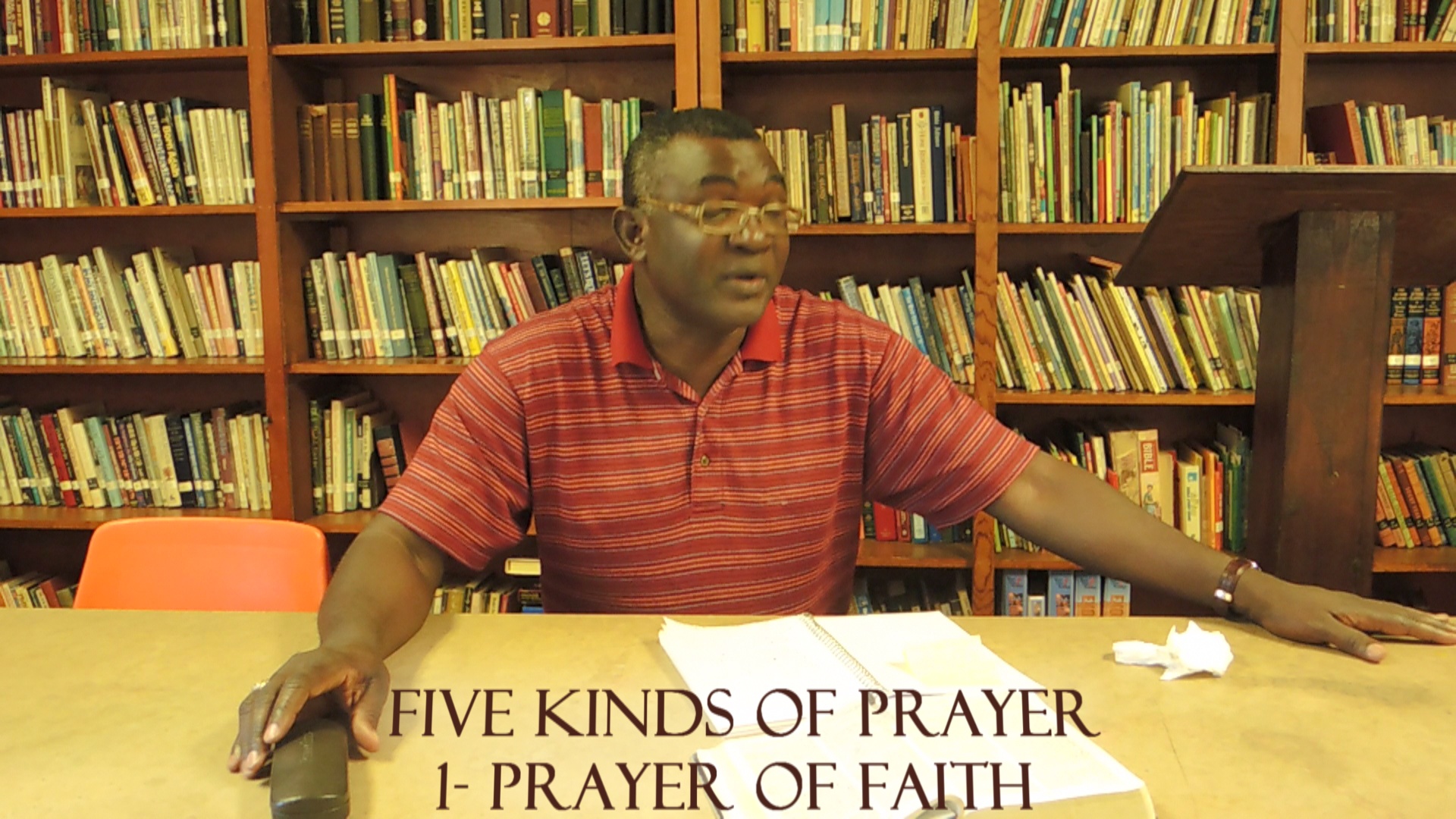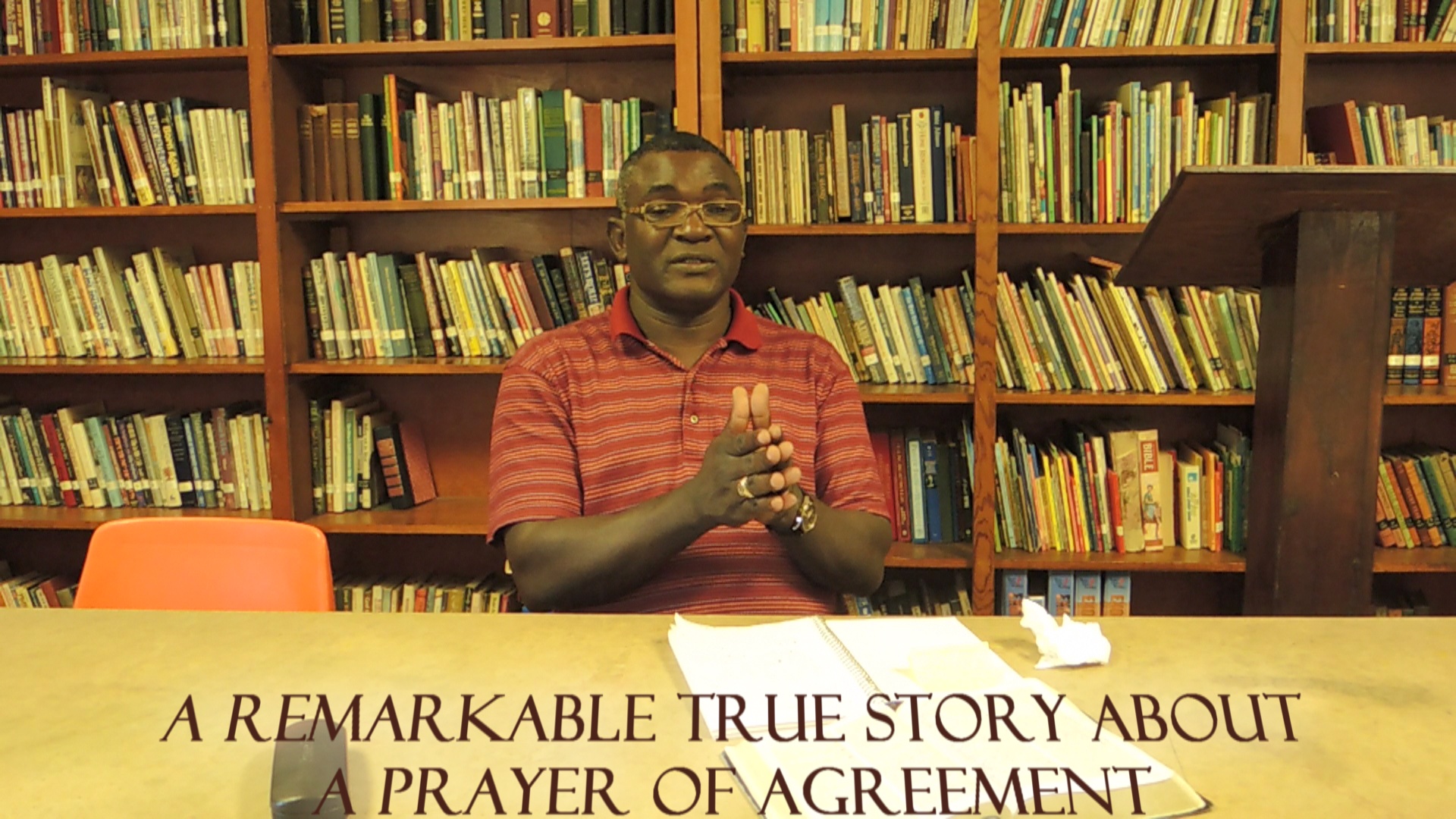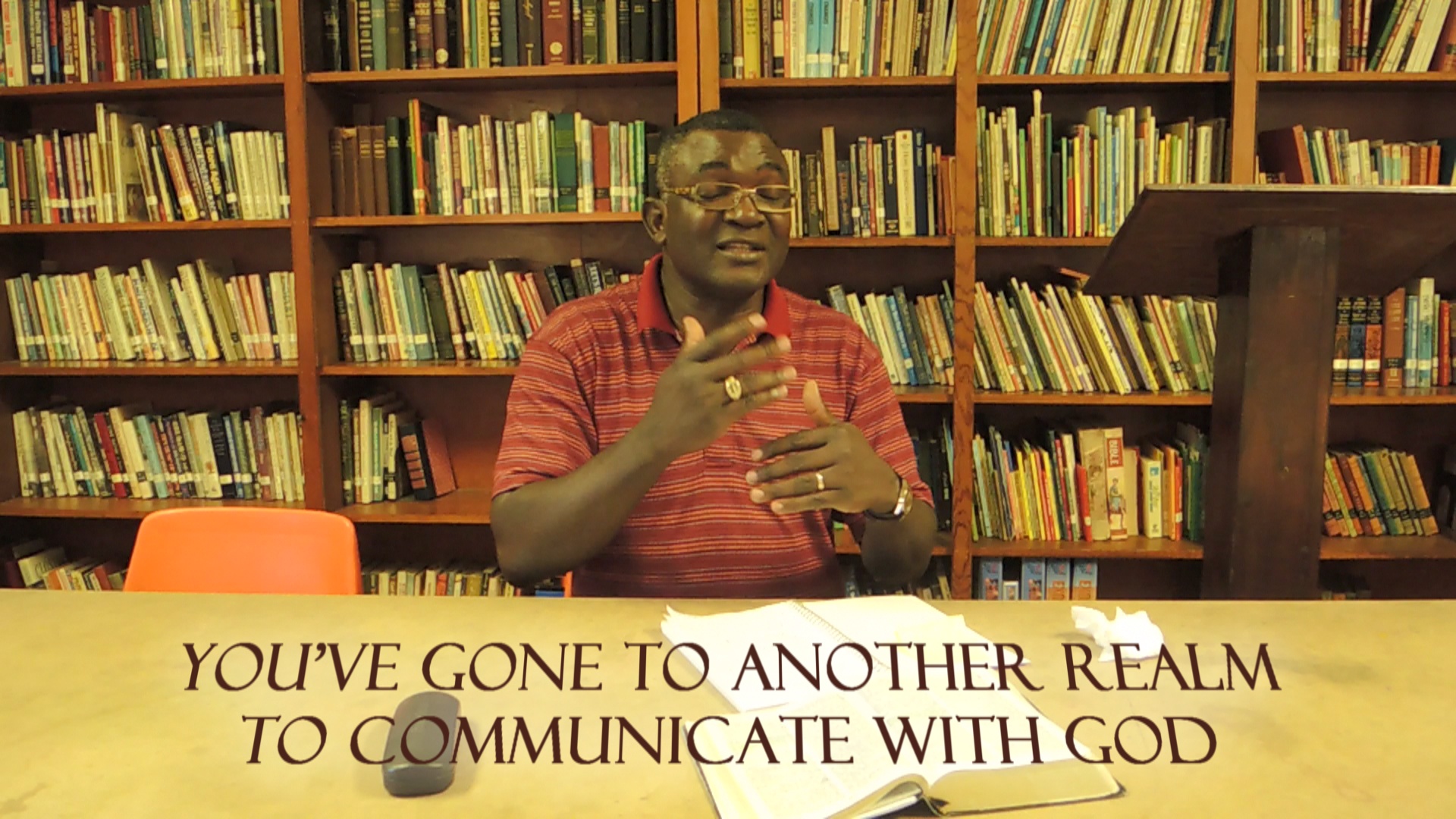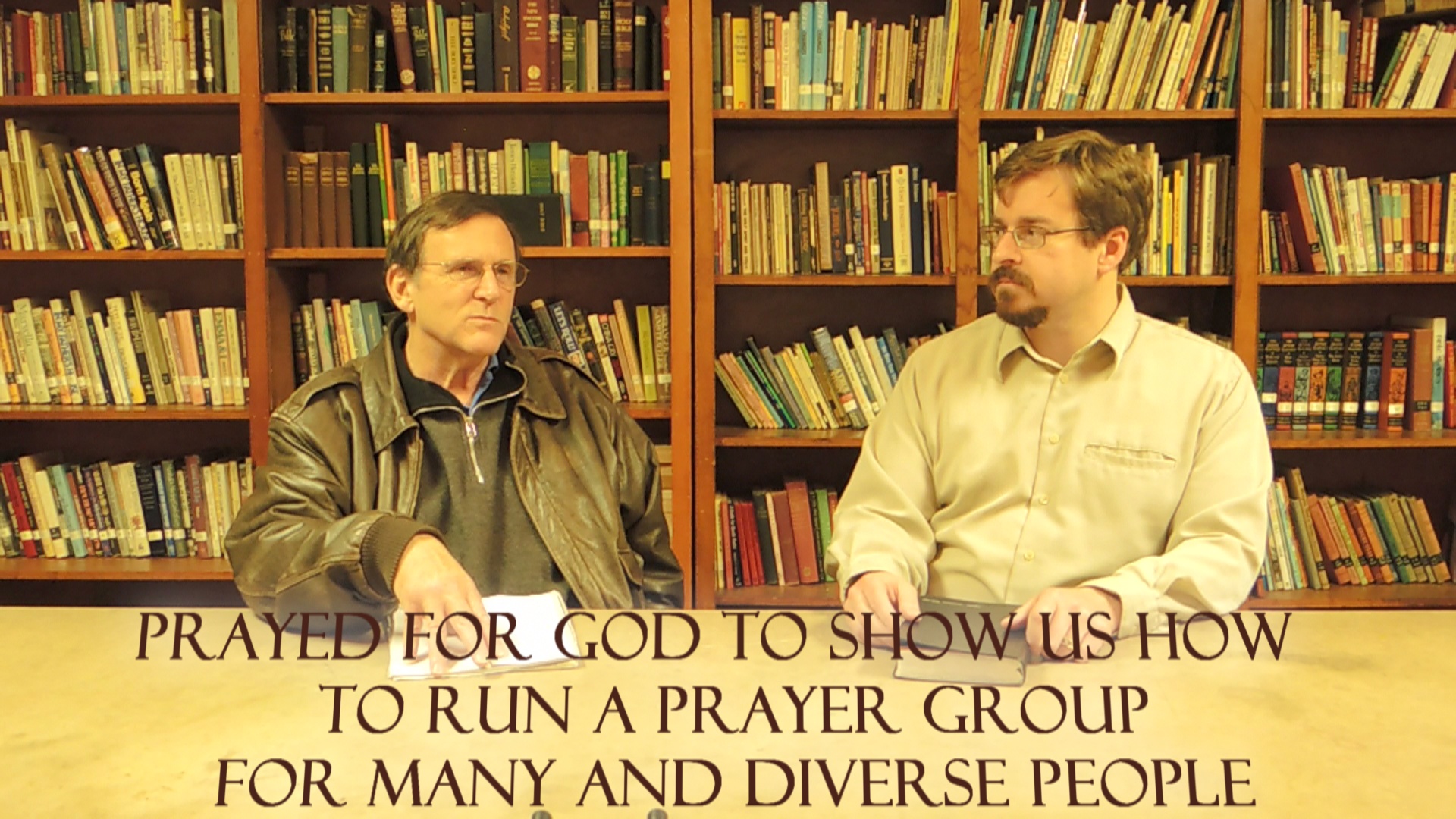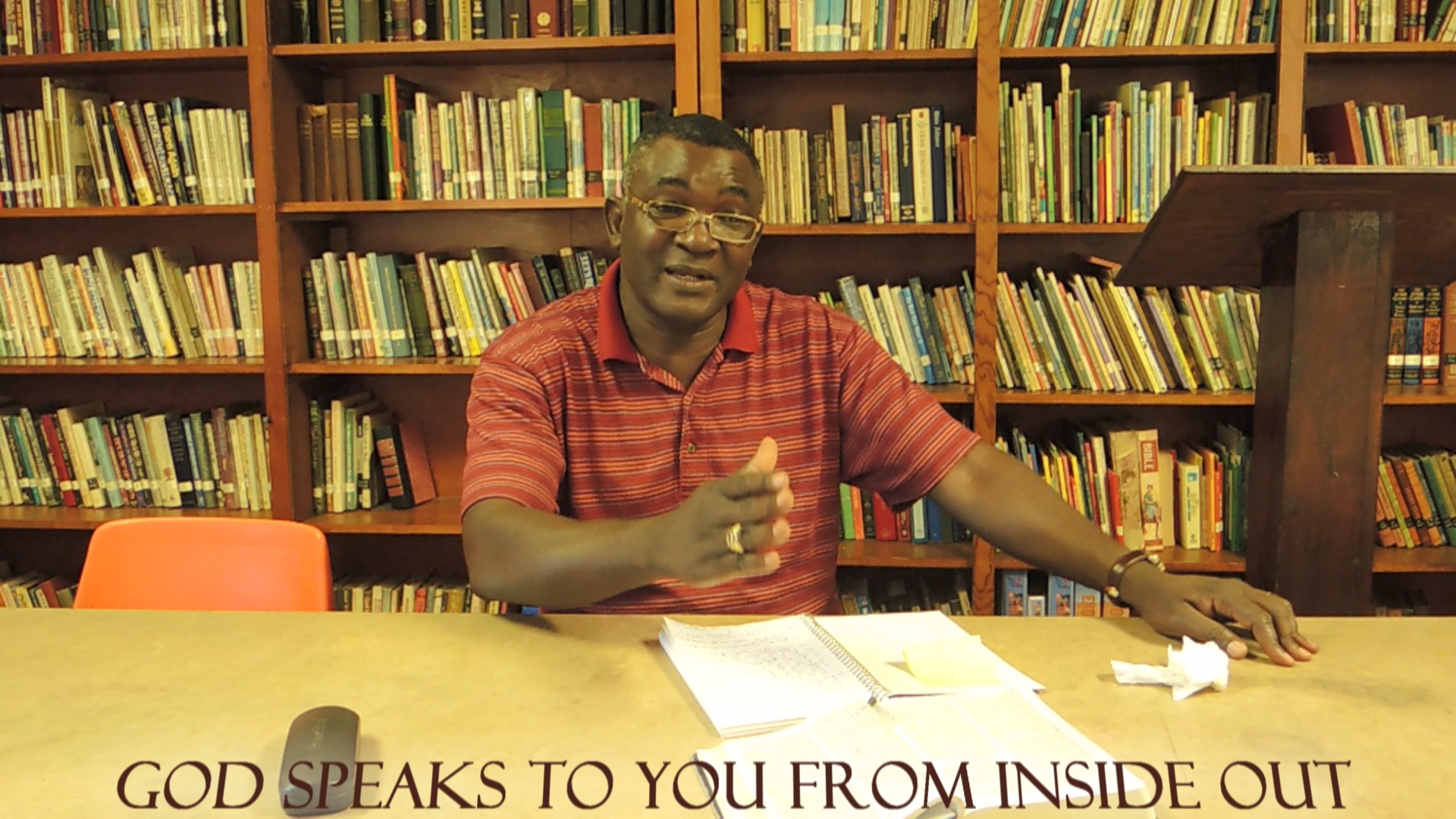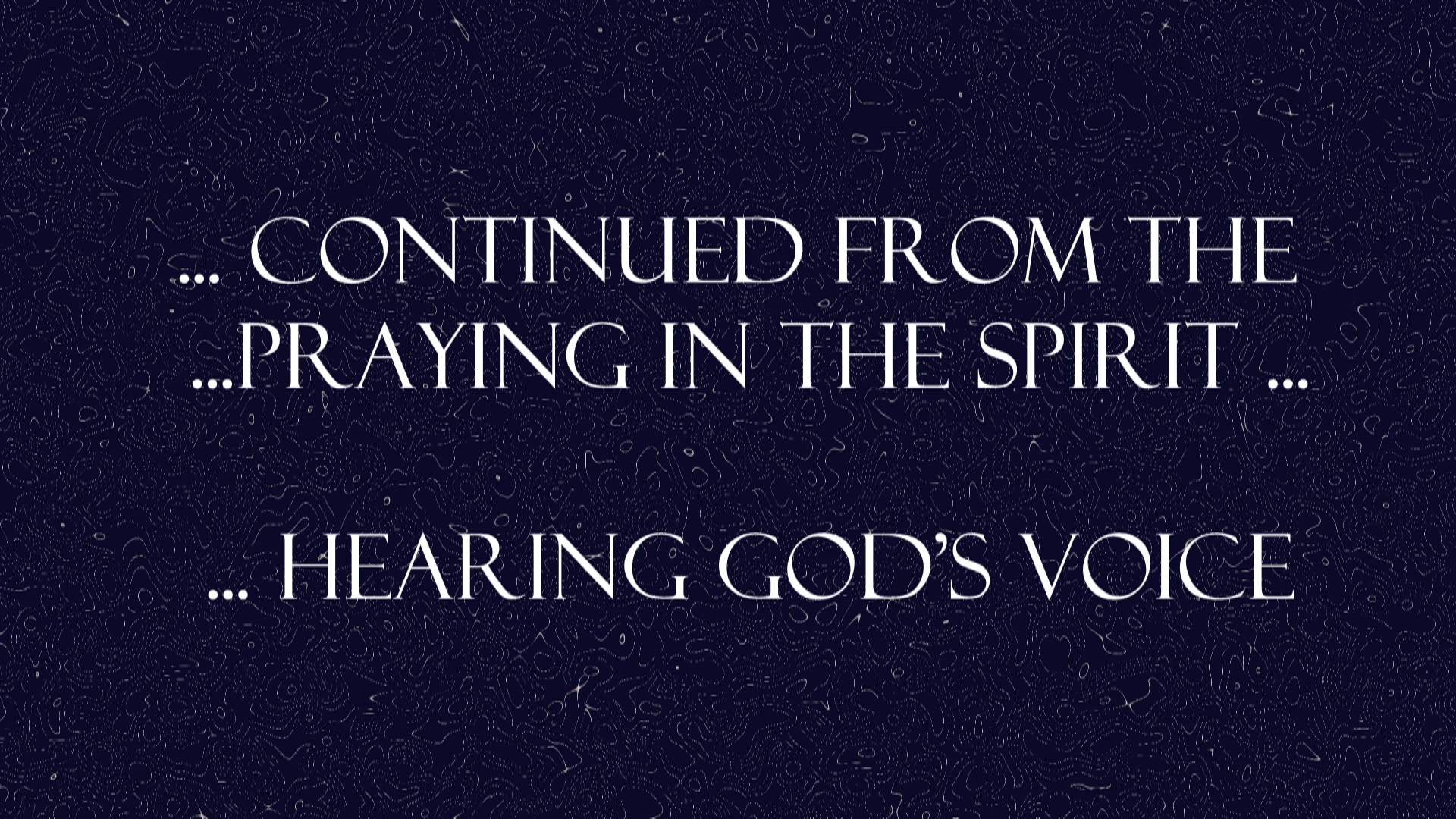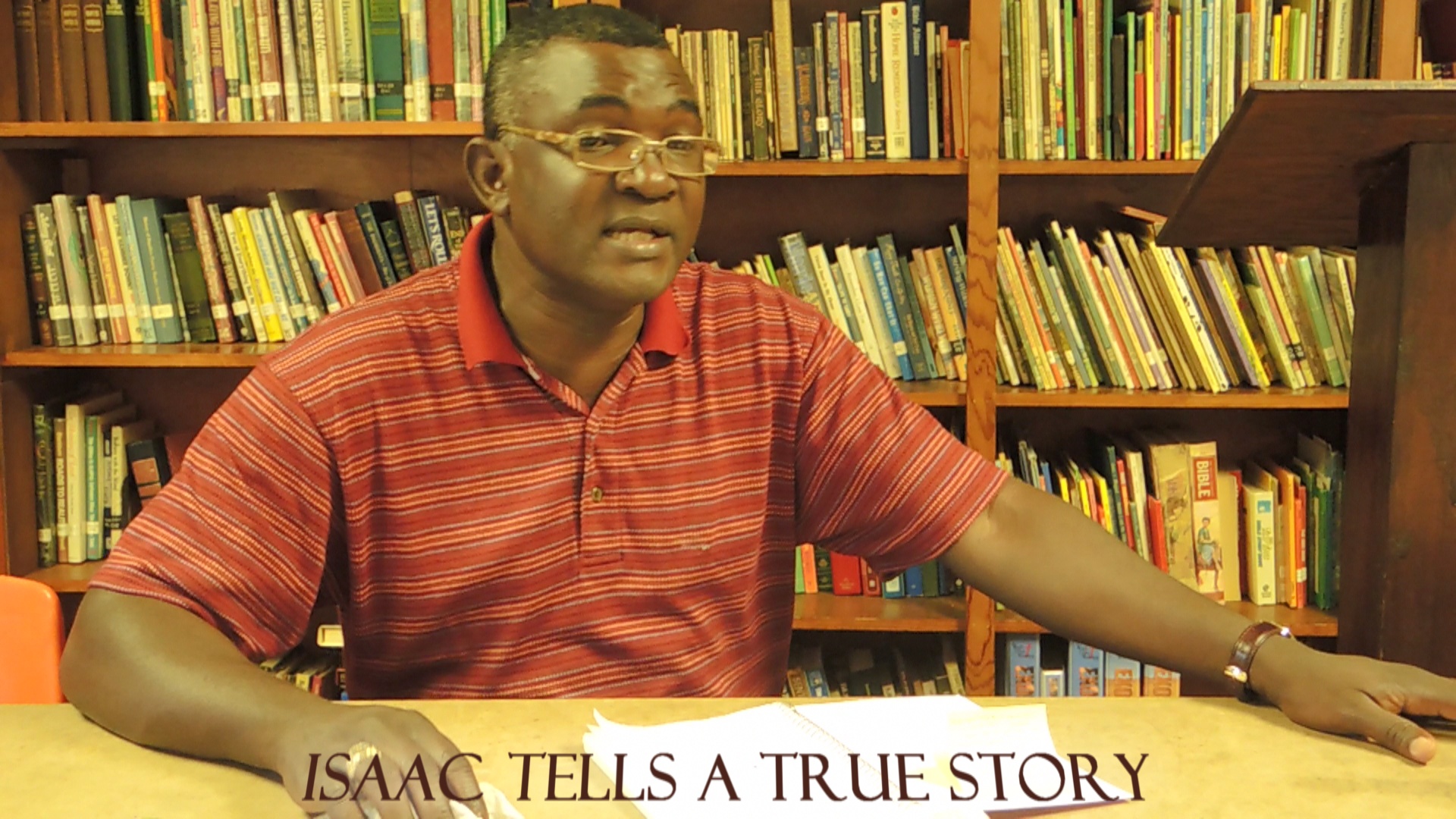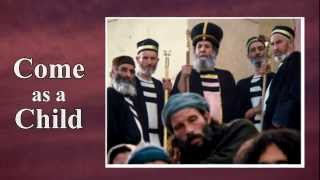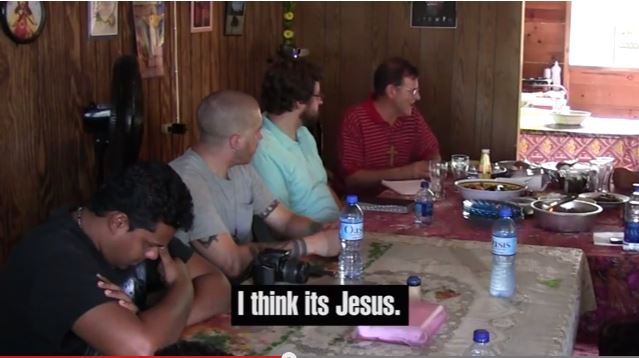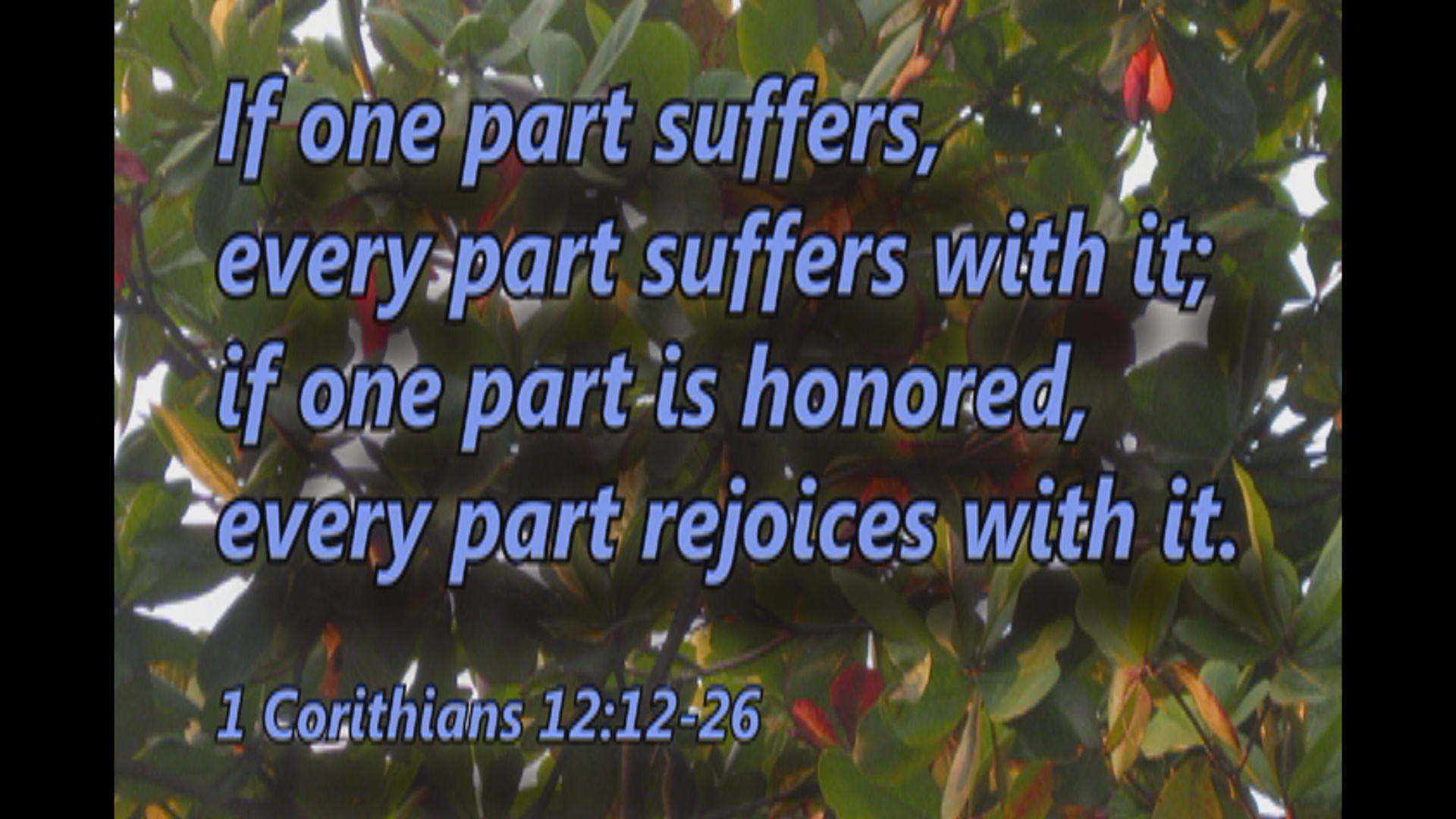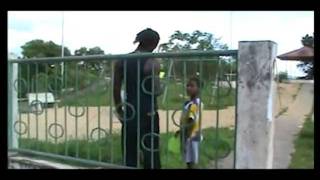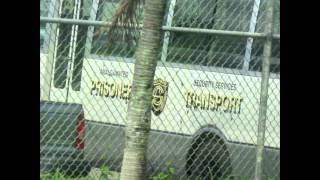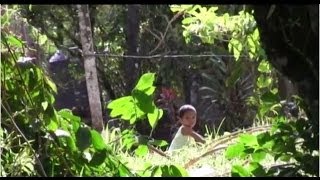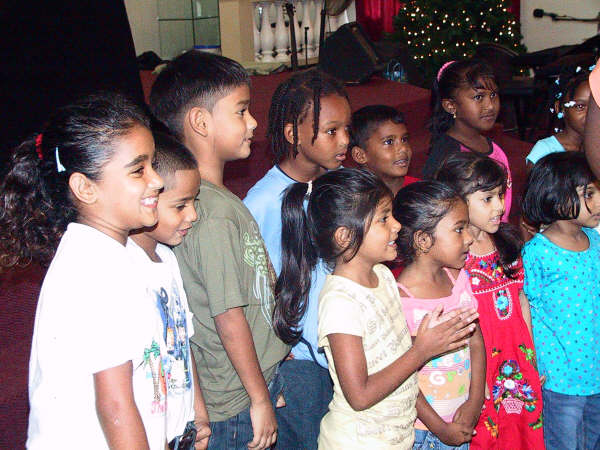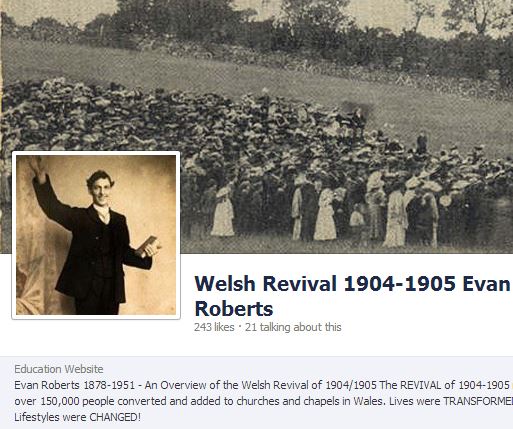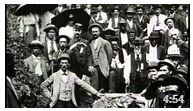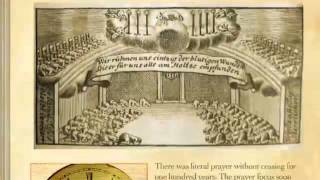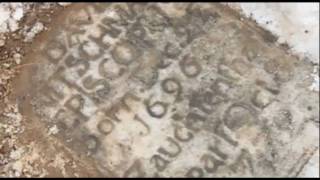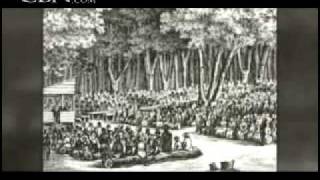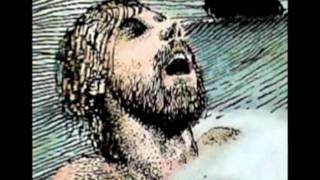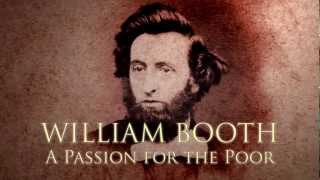March 30, 2010
Introduction
The Youth Training Centre is an Institution which falls within the ambit of the Trinidad and Tobago Prisons Service and caters for Young Offenders between the ages of sixteen(16) to eighteen(18) who have transgressed and sent here by the Courts for a period of training in lieu of imprisonment for a period of not less than three(3) nor more than four(4) years.
The Institution has as its principle philosophy the process of reform and training which would enable those committed to its custody to return to and function beneficially in the society from which, by due process of law, they have been temporarily set apart.
History
This Institution where it presently stands was opened in 1986. It is located at Golden Grove Road, Arouca. It is bounded on the north by Golden Grove Prison, on the south by the Churchill Roosevelt Highway, on the east by the Maximum Security Prison and on the west by the Golden Grove Road.
The Youth Training Centre fashioned its training along similar lines to the English Borstal System for juveniles. The Institution has as its principle philosophy, the process of reform and training. The Youth Training Centre is governed under the Young Offenders Detention Act of the Laws of Trinidad and Tobago, Chapter 13:05.
The Institution occupies approximately fourteen (14) hectares of land space, consisting of thirty-one (31) buildings, as follows:
AdministrationBuilding Chapel Laundry Food Services Dining Hall T.V. Socialization Technical Vocational Building School Library Stores
Generator Room Control 1 and 2 Health Care
Reception Gymnasium Dissociation Unit
Visit Staff Services Computer Lab
Accommodation Area Eight (8) Dormitories
Remand Pre Trial I, II, III and IV
The Aims and Objectives of the Institution
I. To properly administer and manage the sentence imposed by the Court on the offender.
II. To provide secure custody and physical care which foster mature development and minimize the detrimental effects of being incarcerated.
III. Provide constructive and satisfying activities which include academic instructions and vocational and technical training.
IV. To ensure reform and rehabilitation through observation, monitoring, evaluation and counselling in order to help the youths to adjust and deal with personal and social problems.
V. To provide basic needs regarding shelter, clothing, food, health, recreation and religious expression.
VI. To undertake research to improve the responsiveness of the Youth Training Centre to change, so as to implement new offender assistance programme.
General Requirements For Detention
At The Youth Training Centre.
- Conviction of a young person (Male) for any offence other than murder
- That the offence is punishable by a term of imprisonment in the case of an adult.
- That the person is not less than sixteen (16) nor more than eighteen (18) years.
§ A Probation Officer’s report, which suggests that detention at the Y.T.C., is necessary.
§ A Suitability report on the Lad is forwarded by the Superintendent, Y.T.C. to the Court.
Classification Criteria for Commitment
to the Youth Training Centre.
q Must be a male between the ages of sixteen (16) and eighteen (18) years.
q Commits an offence and taken before the Court:-
Magistrate Level (Magistrate’s Court) – (Maximum) Three(3) years,
Judge Level (High Court) – (Maximum) Four(4) years.
q When a Magistrate commits an inmate to the Youth Training Centre, he enters as a Young Offender Awaiting Approval (Y.O.A.A.). The Minister of National Security must approve his sentence. N.B. – Age is an important factor for Approval/Disapproval
q When the Minister of National Security approves the sentence the Lad is given the status of Young Offender (Y.O.).
q (P.P.) President Pleasure.
q Under the Remanded Section at the Youth Training Centre:
· A.C. Adjourned Case (Magistrate Court)
· A.T. Awaiting Trial (High Court)
· A.A. Awaiting Appeal
· P.I. Prohibited Immigrant
Guiding Principles in the Treatment and
Training of Young Offenders.
Ø Regard for the Young Offender’s welfare
Ø Placing trust in the Young Offender so as to ensure reform.
Ø Recognition of each individual’s Potential
Ø Provision of discipline that holds each youth responsible for his behaviour.
Ø Through incentives, offer reasons for the inmates to avail themselves of the opportunities for education, vocational training and personal growth.
Board Of Management
The Youth Training Centre (Young Offenders Detention Institution) falls under the direction and control of the Commissioner of Prisons, who shall be assisted by a Board of Management appointed by the Minister of National Security, who shall hold office for three (3) years, unless sooner determined by the Minister.
Members of the Board of Management:-
Mr. Bernard Shepherd – Inspector of Prisons, Chairman (ex officio)
Mrs. Jennifer Baptiste-Primus – President, Public Service Association
Pundit Mukram Lloyd Sirjoo – Official of the Inter Religious Organisation
Ms. Claudette Drayton – University of Trinidad and Tobago
Mrs. Cheryl Boodram-Baldeosingh – Youth Officer I, Min of Sports and Youth Affairs
Mr. Selwyn Mc Knight – School Supervisor I
Mr. John Rougier – Commissioner of Prisons
Superintendent and Assistant Superintendent, Youth Training Centre.
Programmes & Services
The Youth Training Centre offers a variety of habilitation programmes to the Young Offender. These programmes serve as meaningful vehicles through which habilitation opportunities are provided so as to achieve the successful reintegration of our clients to society. The main emphasis of the Institution’s habilitation is on education, vocational and social development of the lad. Any attempt at effective reformation of the lads must involve carefully designed counselling and training programmes that include appraisal and ongoing assessment of the programmes as well as continuous monitoring of the progress being made by each lad.
The programmes at the Youth Training Centre are structured within three(3) phases.
1. Orientation
2. Main Stream
3. Pre Release
A day at Youth Training Centre
5:00 am Lads are awaken
5:20 am Morning devotion
5:30 am Physical Training
6:30 am Return to Dormitory in preparation for breakfast
7:00 am National Anthem, Pledge and Prayer
7:40 am Return to Dormitory preparation for daily activities/programmes
8:00 -11:30 am Activities/Programmes (school, trade, inter-aila)
11:30 -12:30 pm Lunch
12:30 -3:30 pm Activities/Programmes
3:30 -4:00 pm Dinner
4:00 -6:00 pm Sporting activities, Psycho-social, Grow Box Project (YTEPP)
6:00 -9:00 pm Dormitory Socializing, News broadcasting
9:00 -5:00 am Bed time
Orientation
This stage comprise of six(6) months duration. It deals with evaluation and assessment of lads for placement into programmes best suited for their specific needs. Emphasis is placed upon attitudinal change and the establishment of links with parents/relatives and friends of lads.
Assessment Board
![]() Superintendent (Youth Training Centre)
Superintendent (Youth Training Centre)
![]() Medical Personnel
Medical Personnel
![]() Principal (YTC Government School)
Principal (YTC Government School)
![]() Welfare Officer
Welfare Officer
![]() House Master
House Master
![]() Officer In Charge of Training Programmes
Officer In Charge of Training Programmes
![]() Parents/Guardian
Parents/Guardian
Activities in this phase:
Ø Academic Assessment and Evaluation which serves two purposes:
(i) to reveal Learning Disabilities
(ii) to foster School Placement and Library Programme.
Ø Vocational Assessment, selection and placement.
Ø Welfare Orientation and Counselling Programmes.
Ø Adolescent Development Programme.
Ø Self Awareness Programme.
Ø Medical Evaluation/Assessment/Diagnosis and referrals
Ø Physical Education, assessment and sporting placement
Ø Spiritual Programme.
Ø House Master’s allocation and placement of lads to dormitories.
Ø Drug Counselling Programme
Ø Cultural Programme
Main Stream
The duration of this phase comprise of twenty-four (24) months. Emphasis is placed on assisting lads to realise their true potential. The major activities in this phase include programmes that fall under School, Trade and Sports.
School
In the area of academics, the Institution has the Youth Training Centre Government School, with trained teachers from the Ministry of Education together with qualified officers and volunteer personnel.
On committal to the Youth Training Centre, lads are assessed academically to acquire information on their educational levels attained before committal to the Institution. From this information, their learning disabilities are addressed and they are placed within various academic programmes. These programmes are as follows:-
Academic Programmes at the Institution
Primary Level
Remedial and Advance – School Leaving Certificate
Secondary Level
CXC Mathematics
CXC English
CXC Social Studies
CXC Principles of Business
CXC Information Technology
CXC Principles of Accounts
GCE Human and Social Biology
Pursue educational programmes outside of the Youth Training Centre at:-
o National Academy of Business Arts and Computing
o John Donaldson Technical Institute
o Cipriani Labour College
o School of Continuing Studies, UWI
o Other private educational facilities
Programmes for Remanded Lads
Counselling for all Remanded Lads Project Coordinator
Counselling Department
Mr. Persad
Computer Literacy Life Line
Remedial, Counselling and Religious Alternative to Custody (A.T.C.)
Counselling and Religious Awake Debra Enhancement Team
Counselling and Religious Ms. Allison Joseph
Counselling Child Line
Counselling for All Inmates Prisons Physiologist
Mrs. C. Cyrus-Williams and Staff
Trade
On committal, the lad is assessed and placed in a Vocational Trade Programme (Specialization).
Some of the trades offered are :-
Welding Laundry Woodworking Leather Craft Carpentry Mechanic
Food Preparation Tailoring
Cabinet Making ` Masonry
Electrical Agriculture
Animal Husbandry
Lads who are exemplary in their trades may progress to the On-The-Job-Training (OJT) programme. This training takes place at various organisations outside of the Youth Training Centre.
Sports
In the area of Sports, after taking part in several sporting disciplines at a recreational level, lads are assessed, and may be given the opportunity to represent the institution in a selected sporting discipline. Some of the sporting disciplines include:-
Athletics Boxing Rugby
Football Basketball Baseball Hockey Lawn Tennis
The respective teams compete in various sporting leagues outside of the Institution. Over the years, the Youth Training Centre has been successful in many of these leagues and has won several competitions in football, basketball, rugby, hockey and boxing.
Some lads have been so professional in their sporting skill that they have represented Trinidad and Tobago in under-nineteen football, rugby, hockey and boxing and have travelled overseas to take part in regional and international games.
Cultural
The Youth Training Centre in an effort to improve relations with stakeholders through communication and information; to facilitate opportunities for rehabilitation of offenders and re-unit them and their families into the community the Institution host several family oriented programmes which allow a period of socializing between the lads and their relatives. Such programmes are :-
Orientation of all Training Programmes for Lads
Calypso Competition Easter Concert
Sports and Family Day Mr. Independent Competition
Cultural Extravaganza Inmates Achievement Day
Lads Christmas Concert Angel Tree Programme
The Youth Training Centre is also deeply involved in drama production. In 2009 the lads of the institution placed third (3rd) in the Prime Minister’s Best Village Competition. The institution is also involved in choir, pan and drumming programmes.
Pre-Release
This is the final phase of training which last six (6) months. The de-institutionalizing of the lad is very important in the rehabilitation process. After participating in the various training programmes for the past two and a half (2 ½ ) years it is expected that the lads will make positive decisions and display exemplary behaviour. This pre-release phase is geared towards preparing the lads for discharge.
The activities in this phase continue from the main stream and include:-
v Academic
v Vocational
v Post training support programme
v Counselling
v On The Job Training
v Career Enhancement
v Adult Development Programme (Senior)
v Welfare Programme – Day Pass/Weekend Leave
v Reintegration Programme – Employability Sessions, Anger Management, Stress Management, Understanding the Effect of Crime on Society, Understanding the dangers of chemical addiction, S.T.D’s, Domestic Violence, Making Responsible Choices.
v House Master Life Skills – Leadership Skills, Anger Replacement, Moral Education
v Welfare Aftercare & Support Services – Supervision on Licence, Assistance to discharged inmates, Inmate and Family Counselling Jobs, Accommodations, Referrals.
GRADE SYSTEM
There is a Grade System in place at the Institution which applies specifically to the convicted lades. Conduct grades are divided into the following:- Penal, 1st, 2nd, 3rd, 4th, 5th, 6th, 7th and Discharge.
New Arrivals will undergo an initial three (3) months period of observation during which conduct at work, school and recreation is assessed before an assignment to the first grade takes place.
Inmates are placed before the Superintendent, Youth Training Centre, every three(3) months to be considered for grade promotion. Data and reports are submitted from the various sections – educational, sporting and trade programmes in which the lad is involved, along with recommendations from the House Masters Department. The Superintendent will use this information and determine if the inmate will be promoted to the next conduct grade or if he will be deferred. If the inmate is deferred, he is brought before the Superintendent every month, along with new data and reports, until he achieves his next grade. When he is promoted, he will then revert to the normal procedure of every three(3) months.
Penal Grade
If an inmate is believed to be exercising disruptive behaviour or may be a bad influence upon other inmates, he is placed in the Penal Grade by order of the Commissioner of Prisons. Such inmates are kept physically separate from the general population.
All inmates in the Penal Grade, and all who have served in the Penal Grade during the proceeding quarter shall be brought to the attention of the Board of Management at the next quarterly Board Meeting. A report will be made showing the cause of entry into the Penal Grade, and Progress made therein.
Discharge Grade
Lads’ progress through seven (7) conduct grades towards the Discharge Grade. Inmates who achieve this grade shall be brought before the Discharge Board with intention of being released on Licence (minimum twenty-one (21) month eligibility for Licence).
The After-care Officer (Welfare Officer) shall prepare a report on the progress of the inmate. The welfare Officer also provides a prognosis of the inmate’s prospects on discharge.
Weekend Leave
When the lad has acquired his forth (4th) Conduct Grade, he is afforded the opportunity to proceed on a Weekend Leave. In this leave, the lad is allowed to leave the Institution on Friday and return on Monday of a designated weekend.
This weekend leave serves two main purposes –
(1) to promote good behaviour and discipline,
(2) maintain family relations.
Criteria required inorder to proceed on weekend leave:
v The lad must have forth (4th) Conduct Grade.
v The lad must not have any outstanding Court matters.
v Lad’s sentence must be approved by the Minister of National Security (Young Offender).
v The lad must not have any outstanding matters against the Institution’s Rules and Regulation.
v The Welfare Officer will investigate and report on familial support; accommodations and the neighbourhood where the inmate wishes to spend the Weekend Leave. From this report, the Superintendent would decide whether or not to grant the Weekend Leave.
Day Pass
This privilege may be granted to both committed and remanded inmates, once the reason is justifiable. Examples – funeral visit; visit sick relative; financial transaction; etc. It should be noted that inmates are escorted by Prison Officers while on Day Pass.
LICENCE SYSTEM
Whereas in the adult establishments/system, inmates are afforded remission allowing them to serve part of their sentence, at the Youth Training Centre a Licence system is in place. This system is similar to the Parole System used in the United States of America.
Criteria for early release or Discharge on Licence: –
Ø The lad must be a Young Offender.
(His sentence has to be approved by the Minister of National Security)
Ø The inmate must achieve his Discharge Grade
Ø Must be placed under the supervision or authority named in the licence who is willing to take charge of the Lad
If the progress of the lad is such that he has achieved his Discharge Conduct Grade which could be attained in twenty-one (21) months, the lad can be discharged on Licence, instead of serving his thirty-six (36) or forty-eight (48) month sentence as the case may be.
The Commissioner of Prisons may at any time after the expiration of six (6) months from the commencement of the term of detention, if satisfied that there is a reasonable probability that the offender will abstain from crime and lead a useful and industrious life, by licence permit him to be discharged from the Institution on condition that he be placed under the supervision or authority of any society or person named in the licence who may be willing to take charge of the case. {Young Offenders Detention Act, Chap 13:05 12(1)}
There are stipulated guidelines in the Licence to which the lad must adhere. In the event that the inmate does not meet this requirement, the Commissioner of Prisons has the privilege to revoke the Licence and the lad will be returned to the Institution to spend the residue of the original sentence which was imposed upon him.
Discharge Board
This board meets on the recommendation of the Superintendent, Youth Training Centre and decides on the fitness for discharge of all inmates who have reached the Discharge Conduct Grade. An in-depth report on each lad has to be provided by the Welfare Department.
The Board comprises: Inspector of Prisons
Commissioner of Prisons
Chief Prison Welfare Officer
Superintendent, Youth Training Centre
Welfare Officer I & II, Youth Training Centre
School Principal
Supervisor, Youth Training Centre.
Chaplains :- Anglican Church (A.C.), Muslim Denomination, Hindu Denomination, Roman Catholic (R.C.), None Conformist.
Letters
Reception to 2nd Conduct Grade – One (1) letter per month
Between 2nd and 3rd Conduct Grade – One (1) letter per fortnight
Form 4th to Discharge Grade – One (1) letter per week.
There are no restrictions to the number of inward letters an inmate shall receive.
Visits
From Reception to 2nd Conduct Grade – Two (2) visits
From 2nd to 4th Conduct Grade – One (!) visit per month
From 4th to Discharge Grade – One (1) visit per fortnight
The number of persons who may visit a lad at any one visit is limited to three (3) persons.
Currently, due to reformative and rehabilitative efforts, the Superintendent of the Youth Training Centre has allowed lads to receive two (2) visits per week.
Duration of Visit
Ordinary Visit – 20 minutes
Special Visit – 40 minutes
Guideline for Visitors
Ø Dress Code in effect. Mutual respect and discipline must be maintained at all times. To assist with this visitors are kindly asked to comply with the dress code. The following are considered un acceptable attire and as such, individuals wearing these garments will not be allowed to enter the premises:- No Short pants, tights, cycle shorts, spandex or slinky pants, sleeveless vest or armhole tops, see through outfits, mini skirts, midriff tops, low riders and ¾ pants.
The Institution reserves the right to refuse admission.
Ø A form of valid identification has to be presented :- Identification Card, Drivers Permit or Passport.
Ø Any cell phones or communication device must be left at the gate.
Ø No person shall bring into the institution any of the following without permission of the Commissioner of Prisons. Any firearm, ammunition or prohibited weapon.
Any Camera, tape recorder, cellular phone or any type of electronic device.
Ø No alcoholic beverages allowed on the compound.
Ø Any other item considered by the gate officer to be security risk. On entry, these items must be declared and left with the senior Prison Officer at the gate.
Ø Visitors are further advised that they may be subjected to security checks and that visits could be suspended or refused.
Ø No Money, cigarettes or prohibited articles should be given to any lad. Furthermore, any item to be handed over to a lad must go through the visit officer.
Ø Items allowed on visit: Three (3) fruits, items purchased at the YTC’s Canteen and cloths. Also, through request, the superintendent of the Youth Training Centre may grant permission for inmates to receive other relevant items.
Ø Any person found with illegal drugs would be liable to prosecution by law.
Ø Visitors may be subjected to search on entry and exit.
Dormitory Rules
In an effort to maintain order and discipline, and to sustain good health, hygiene and cleanliness of dormitories and their surroundings, the following rules are to be followed by Lads.
1. Bathroom area is to dry skin when bath is completed.
2. Flush toilet after use.
3. No throwing of food remains in the sink.
4. Close taps after use.
5. Keep glass clean after brushing teeth.
6. No stealing of each other’s property.
7. Socialization area is to be kept clean at all times.
8. No bear back or jockey shorts appearance in the Socialization area.
9. Chairs must be put back in place after use.
10. All empty cubicles as well as your own must be kept clean at all time.
11. Dormitory is to be swept and mopped daily.
12. Keep out of other lad’s cubicle.
13. Avoid noise after last checking (9:00 p.m.).
14. The Corridor in front of the Dormitory must be kept clean at all times.
15. No throwing of items through Dormitory Louvers.
16. No lending of mops or brooms without the consent of the House Captain.
17. No drawing or writing on the walls.
18. All lads must participate in general cleaning of Dormitories on Sundays.
19. No fixture in the Dormitory must be tampered with or damaged.
20. Lads must clean the Dormitory as rostered.
Rules of the Institution
Youth Training Centre.
Prison Revised Ordinance 1950 Chapter 11 No. 7 Rule 269.
An inmate shall be guilty of an offence against prison discipline if he:-
1. Disobey an order of any Prison Officer or any Prison Rule.
2. Treats with disrespect any Officer or servant of the institution, or any person
authorized to visit the institution.
3. Is idle, careless or negligent at work, or refuse to work.
4. Swears, curses, or uses any abusive, insolent, threatening or other improper language.
5. Is indecent in language, act or gesture.
6. Commits an assault.
7. Communicated with another inmate without authority.
8. Leaves his cell or place of work, or other appointed place of work without permission.
9. Wilfully disfigures or damage any part of the institution property which is not his own.
10. Commits a nuisance.
11. Has in his possession any unauthorized or prohibited article or obtain any such article.
12. Gives to, or receives from any person any unauthorized or prohibited article.
13. Escapes from the institution or legal custody.
14. Mutiny or incites other persons to mutiny.
15. Commits personal violence against any Officer or servant of the institution.
16. In any way offends against good order and discipline.
17. Attempts to do any of the foregoing things.
If any of these rules are infringed upon, lads could be awarded punishment by the Superintendent, Youth Training Centre; Commissioner of Prisons; or the Inspector of Prisons. The type of punishment awarded are based on the severity of the offences and are as follows :- Fatigue Duty, Dietary Punishment, Suspended Sentence, Confinement, Corporal Punishment, Severely Warned, Reduction in Grade or Postponement of Privilege,
House Masters
House Masters are officers whose duties promote a big brother relationship with the lads of the Institution. They foster the trust of the lads and as a result steer them towards rehabilitation. In order to accomplish this, House Masters pursue the following guidelines.
Ø House Masters work special shift (flexible hours) to accommodate meeting with lads.
Ø They are allowed to report and perform duties in civilian wear.
Ø They shall prepare initial report on inmates in their dormitory.
Ø Their aim is to establish effective and active relations with inmates to encourage :-
§ Self improvement.
§ Self understanding.
§ Self respect.
§ Solution to various problems.
§ Maintain Institution’s regulation.
Ø They work in collaboration with the Sporting, Welfare and Training Departments and provide assistance in the planning of inmate’s programmes.
Ø They assess and report on the performance of inmates.
Ø They prepare Conduct Grade forms and be present for grading of their charges.
Ø They take part in meetings related to:-
§ Day passes.
§ Release on licence.
§ Allocation to trade.
§ Punishment of inmates.
§ Grade promotion and deferment.
§ Allocation of dormitories
Ø House Masters are responsible for their dormitories’ hygiene and will distribute toiletries and cleaning agents.
Ø They are responsible for the distribution, collection and vetting of letter forms.
Ø House Masters are responsible for taking request from lads.
Ø House Masters also hold group counselling and assessment of lads in their respective dormitories.
Welfare Department
Mr. S. Bruce – Welfare Officer II
Mr. R. Beaumont – Welfare Officer I
Mr. K. Siew – Prison Officer I, Welfare Clerk
Distinguishing Features of Work.
This department provides case work service to lads. Work involves assisting inmates generally in their personal problems, in educational activities, in adjusting to prison life, preparing them for parole and assisting them in finding employment on their discharge. Work requires initiative and judgement in determining the nature and method of providing the necessary service, and is performed under general supervision of a supervisor. Work is reviewed through reports and conferencing for results achieved.
Family Support
The mission of the welfare officer is to help families preserve and strengthen positive relationships with relatives or significant ones who are incarcerated. This is done through a continuum of direct information and support services. It is strongly dedicated to encouraging family ties as a deterrent to the recidivism of offenders by addressing issues such as the destruction of the family unit, single parent and child care, legal issues and visitation issues. They assist families/friends in coping with incarceration and prepare them for lad’s release and reunification. The Welfare Department provide resource referrals to other agencies that aid with employment, drug rehabilitation, social welfare and probation.
Some of the services provided to lads at the Institution are as follows:-
v Assisting lads generally in their personal problems and in educational activities.
v Helping lads to adjust to institutional life.
v Prepare lads for discharge or early release on licence.
v Finding employment for lads to on the job training and also on discharge.
v Counselling lads regarding personal and family problem s and assist them on resolving these problems.
v Liase with social agencies and the lad’s family and friends to assist in providing their personal, emotional and social needs.
v Inform and orient lads regarding institution’s rules and discipline.
v Advise and encourage lads to take the necessary steps in preparing for discharge and re-entry into the community.
v Arrange Weekend Leaves for lads with the view of maintaining good family relationships.
v Check on those relationships that seem to be on the wane and attempt to re-establish them.
v Arrange and take out lads on Day Pass.
Type of Work (Welfare Officer)
Ø Interview inmates and secure information relating to their social history prior to and during detention and prepare case histories as necessary.
Ø Interview lads on committal with the view of allaying fears they may have of life at YTC
Ø Establish relationship with inmates, advise them on the rules and regulations of the Institution and assist in their orientation to the Institution.
Ø Interview and counsels inmates regarding personal and family problems and assist them in resolving these problems.
Ø Promotes and organises cultural and recreational activities which requires the participation of the inmates with the aim of educating and rehabilitating them ultimately.
Ø Counsels inmates on social adjustment inside and outside the Institution and liases with appropriate agencies in finding employment on their discharge.
Ø Participate in escorting prisoners to view corpses of deceased relatives of inmates.
Ø Escort prisoners for interviews with perspective employers.
Ø Liase with social agencies and the inmate’s family and friends to assist in providing their personal and social needs.
Ø Purchases, stores and issues clothing and tools to discharged inmates
Produced By:
Kelvin Siew
Prison Officer I, #2387

 |
Mission Statement:
The Youth Training Centre is a detention institution where the total rehabilitation of young offenders is our highest mission.
Our focus is to improve the quality of life for our charges. We pledge to provide the best counselling, guidance and training that will result in the holistic development of the inmates to facilitate their reintegration into society.
VISION:
To empower our charges to become trusted and respected by society.
 |
 |
|
Introduction
The Youth Training Centre is an Institution which falls within the ambit of the Trinidad and Tobago Prisons Service and caters for Young Offenders between the ages of sixteen(16) to eighteen(18) who have transgressed and sent here by the Courts for a period of training in lieu of imprisonment for a period of not less than three(3) nor more than four(4) years.
The Institution has as its principle philosophy the process of reform and training which would enable those committed to its custody to return to and function beneficially in the society from which, by due process of law, they have been temporarily set apart.
History
This Institution where it presently stands was opened in 1986. It is located at Golden Grove Road, Arouca. It is bounded on the north by Golden Grove Prison, on the south by the Churchill Roosevelt Highway, on the east by the Maximum Security Prison and on the west by the Golden Grove Road.
The Youth Training Centre fashioned its training along similar lines to the English Borstal System for juveniles. The Institution has as its principle philosophy, the process of reform and training. The Youth Training Centre is governed under the Young Offenders Detention Act of the Laws of Trinidad and Tobago, Chapter 13:05.
The Institution occupies approximately fourteen (14) hectares of land space, consisting of thirty-one (31) buildings, as follows:
AdministrationBuilding Chapel Laundry Food Services Dining Hall T.V. Socialization Technical Vocational Building School Library Stores
Generator Room Control 1 and 2 Health Care
Reception Gymnasium Dissociation Unit
Visit Staff Services Computer Lab
Accommodation Area Eight (8) Dormitories
Remand Pre Trial I, II, III and IV
The Aims and Objectives of the Institution
I. To properly administer and manage the sentence imposed by the Court on the offender.
II. To provide secure custody and physical care which foster mature development and minimize the detrimental effects of being incarcerated.
III. Provide constructive and satisfying activities which include academic instructions and vocational and technical training.
IV. To ensure reform and rehabilitation through observation, monitoring, evaluation and counselling in order to help the youths to adjust and deal with personal and social problems.
V. To provide basic needs regarding shelter, clothing, food, health, recreation and religious expression.
VI. To undertake research to improve the responsiveness of the Youth Training Centre to change, so as to implement new offender assistance programme.
General Requirements For Detention
At The Youth Training Centre.
- Conviction of a young person (Male) for any offence other than murder
- That the offence is punishable by a term of imprisonment in the case of an adult.
- That the person is not less than sixteen (16) nor more than eighteen (18) years.
§ A Probation Officer’s report, which suggests that detention at the Y.T.C., is necessary.
§ A Suitability report on the Lad is forwarded by the Superintendent, Y.T.C. to the Court.
Classification Criteria for Commitment
to the Youth Training Centre.
q Must be a male between the ages of sixteen (16) and eighteen (18) years.
q Commits an offence and taken before the Court:-
Magistrate Level (Magistrate’s Court) – (Maximum) Three(3) years,
Judge Level (High Court) – (Maximum) Four(4) years.
q When a Magistrate commits an inmate to the Youth Training Centre, he enters as a Young Offender Awaiting Approval (Y.O.A.A.). The Minister of National Security must approve his sentence. N.B. – Age is an important factor for Approval/Disapproval.
q When the Minister of National Security approves the sentence the Lad is given the status of Young Offender (Y.O.).
q (P.P.) President Pleasure.
q Under the Remanded Section at the Youth Training Centre:
· A.C. Adjourned Case (Magistrate Court)
· A.T. Awaiting Trial (High Court)
· A.A. Awaiting Appeal
· P.I. Prohibited Immigrant
Guiding Principles in the Treatment and
Training of Young Offenders.
Ø Regard for the Young Offender’s welfare
Ø Placing trust in the Young Offender so as to ensure reform.
Ø Recognition of each individual’s Potential
Ø Provision of discipline that holds each youth responsible for his behaviour.
Ø Through incentives, offer reasons for the inmates to avail themselves of the opportunities for education, vocational training and personal growth.
Board Of Management
The Youth Training Centre (Young Offenders Detention Institution) falls under the direction and control of the Commissioner of Prisons, who shall be assisted by a Board of Management appointed by the Minister of National Security, who shall hold office for three (3) years, unless sooner determined by the Minister.
Members of the Board of Management:-
Mr. Bernard Shepherd – Inspector of Prisons, Chairman (ex officio)
Mrs. Jennifer Baptiste-Primus – President, Public Service Association
Pundit Mukram Lloyd Sirjoo – Official of the Inter Religious Organisation
Ms. Claudette Drayton – University of Trinidad and Tobago
Mrs. Cheryl Boodram-Baldeosingh – Youth Officer I, Min of Sports and Youth Affairs
Mr. Selwyn Mc Knight – School Supervisor I
Mr. John Rougier – Commissioner of Prisons
Superintendent and Assistant Superintendent, Youth Training Centre.
Programmes & Services
The Youth Training Centre offers a variety of habilitation programmes to the Young Offender. These programmes serve as meaningful vehicles through which habilitation opportunities are provided so as to achieve the successful reintegration of our clients to society. The main emphasis of the Institution’s habilitation is on education, vocational and social development of the lad. Any attempt at effective reformation of the lads must involve carefully designed counselling and training programmes that include appraisal and ongoing assessment of the programmes as well as continuous monitoring of the progress being made by each lad.
The programmes at the Youth Training Centre are structured within three(3) phases.
1. Orientation
2. Main Stream
3. Pre Release
A day at Youth Training Centre
5:00 am Lads are awaken
5:20 am Morning devotion
5:30 am Physical Training
6:30 am Return to Dormitory in preparation for breakfast
7:00 am National Anthem, Pledge and Prayer
7:40 am Return to Dormitory preparation for daily activities/programmes
8:00 -11:30 am Activities/Programmes (school, trade, inter-aila)
11:30 -12:30 pm Lunch
12:30 -3:30 pm Activities/Programmes
3:30 -4:00 pm Dinner
4:00 -6:00 pm Sporting activities, Psycho-social, Grow Box Project (YTEPP)
6:00 -9:00 pm Dormitory Socializing, News broadcasting
9:00 -5:00 am Bed time
Orientation
This stage comprise of six(6) months duration. It deals with evaluation and assessment of lads for placement into programmes best suited for their specific needs. Emphasis is placed upon attitudinal change and the establishment of links with parents/relatives and friends of lads.
Assessment Board
![]() Superintendent (Youth Training Centre)
Superintendent (Youth Training Centre)
![]() Medical Personnel
Medical Personnel
![]() Principal (YTC Government School)
Principal (YTC Government School)
![]() Welfare Officer
Welfare Officer
![]() House Master
House Master
![]() Officer In Charge of Training Programmes
Officer In Charge of Training Programmes
![]() Parents/Guardian
Parents/Guardian
Activities in this phase:
Ø Academic Assessment and Evaluation which serves two purposes:
(i) to reveal Learning Disabilities
(ii) to foster School Placement and Library Programme.
Ø Vocational Assessment, selection and placement.
Ø Welfare Orientation and Counselling Programmes.
Ø Adolescent Development Programme.
Ø Self Awareness Programme.
Ø Medical Evaluation/Assessment/Diagnosis and referrals
Ø Physical Education, assessment and sporting placement
Ø Spiritual Programme.
Ø House Master’s allocation and placement of lads to dormitories.
Ø Drug Counselling Programme
Ø Cultural Programme
Main Stream
The duration of this phase comprise of twenty-four (24) months. Emphasis is placed on assisting lads to realise their true potential. The major activities in this phase include programmes that fall under School, Trade and Sports.
School
In the area of academics, the Institution has the Youth Training Centre Government School, with trained teachers from the Ministry of Education together with qualified officers and volunteer personnel.
On committal to the Youth Training Centre, lads are assessed academically to acquire information on their educational levels attained before committal to the Institution. From this information, their learning disabilities are addressed and they are placed within various academic programmes. These programmes are as follows:-
Academic Programmes at the Institution
Primary Level
Remedial and Advance – School Leaving Certificate
Secondary Level
CXC Mathematics
CXC English
CXC Social Studies
CXC Principles of Business
CXC Information Technology
CXC Principles of Accounts
GCE Human and Social Biology
Pursue educational programmes outside of the Youth Training Centre at:-
o National Academy of Business Arts and Computing
o John Donaldson Technical Institute
o Cipriani Labour College
o School of Continuing Studies, UWI
o Other private educational facilities
Programmes for Remanded Lads
Counselling for all Remanded Lads Project Coordinator
Counselling Department
Mr. Persad
Computer Literacy Life Line
Remedial, Counselling and Religious Alternative to Custody (A.T.C.)
Counselling and Religious Awake Debra Enhancement Team
Counselling and Religious Ms. Allison Joseph
Counselling Child Line
Counselling for All Inmates Prisons Physiologist
Mrs. C. Cyrus-Williams and Staff
Trade
On committal, the lad is assessed and placed in a Vocational Trade Programme (Specialization).
Some of the trades offered are :-
Welding Laundry Woodworking Leather Craft Carpentry Mechanic
Food Preparation Tailoring
Cabinet Making ` Masonry
Electrical Agriculture
Animal Husbandry
Lads who are exemplary in their trades may progress to the On-The-Job-Training (OJT) programme. This training takes place at various organisations outside of the Youth Training Centre.
Sports
In the area of Sports, after taking part in several sporting disciplines at a recreational level, lads are assessed, and may be given the opportunity to represent the institution in a selected sporting discipline. Some of the sporting disciplines include:-
Athletics Boxing Rugby
Football Basketball Baseball Hockey Lawn Tennis
The respective teams compete in various sporting leagues outside of the Institution. Over the years, the Youth Training Centre has been successful in many of these leagues and has won several competitions in football, basketball, rugby, hockey and boxing.
Some lads have been so professional in their sporting skill that they have represented Trinidad and Tobago in under-nineteen football, rugby, hockey and boxing and have travelled overseas to take part in regional and international games.
Cultural
The Youth Training Centre in an effort to improve relations with stakeholders through communication and information; to facilitate opportunities for rehabilitation of offenders and re-unit them and their families into the community the Institution host several family oriented programmes which allow a period of socializing between the lads and their relatives. Such programmes are :-
Orientation of all Training Programmes for Lads
Calypso Competition Easter Concert
Sports and Family Day Mr. Independent Competition
Cultural Extravaganza Inmates Achievement Day
Lads Christmas Concert Angel Tree Programme
The Youth Training Centre is also deeply involved in drama production. In 2009 the lads of the institution placed third (3rd) in the Prime Minister’s Best Village Competition. The institution is also involved in choir, pan and drumming programmes.
Pre-Release
This is the final phase of training which last six (6) months. The de-institutionalizing of the lad is very important in the rehabilitation process. After participating in the various training programmes for the past two and a half (2 ½ ) years it is expected that the lads will make positive decisions and display exemplary behaviour. This pre-release phase is geared towards preparing the lads for discharge.
The activities in this phase continue from the main stream and include:-
v Academic
v Vocational
v Post training support programme
v Counselling
v On The Job Training
v Career Enhancement
v Adult Development Programme (Senior)
v Welfare Programme – Day Pass/Weekend Leave
v Reintegration Programme – Employability Sessions, Anger Management, Stress Management, Understanding the Effect of Crime on Society, Understanding the dangers of chemical addiction, S.T.D’s, Domestic Violence, Making Responsible Choices.
v House Master Life Skills – Leadership Skills, Anger Replacement, Moral Education
v Welfare Aftercare & Support Services – Supervision on Licence, Assistance to discharged inmates, Inmate and Family Counselling Jobs, Accommodations, Referrals.
GRADE SYSTEM
There is a Grade System in place at the Institution which applies specifically to the convicted lades. Conduct grades are divided into the following:- Penal, 1st, 2nd, 3rd, 4th, 5th, 6th, 7th and Discharge.
New Arrivals will undergo an initial three (3) months period of observation during which conduct at work, school and recreation is assessed before an assignment to the first grade takes place.
Inmates are placed before the Superintendent, Youth Training Centre, every three(3) months to be considered for grade promotion. Data and reports are submitted from the various sections – educational, sporting and trade programmes in which the lad is involved, along with recommendations from the House Masters Department. The Superintendent will use this information and determine if the inmate will be promoted to the next conduct grade or if he will be deferred. If the inmate is deferred, he is brought before the Superintendent every month, along with new data and reports, until he achieves his next grade. When he is promoted, he will then revert to the normal procedure of every three(3) months.
Penal Grade
If an inmate is believed to be exercising disruptive behaviour or may be a bad influence upon other inmates, he is placed in the Penal Grade by order of the Commissioner of Prisons. Such inmates are kept physically separate from the general population.
All inmates in the Penal Grade, and all who have served in the Penal Grade during the proceeding quarter shall be brought to the attention of the Board of Management at the next quarterly Board Meeting. A report will be made showing the cause of entry into the Penal Grade, and Progress made therein.
Discharge Grade
Lads’ progress through seven (7) conduct grades towards the Discharge Grade. Inmates who achieve this grade shall be brought before the Discharge Board with intention of being released on Licence (minimum twenty-one (21) month eligibility for Licence).
The After-care Officer (Welfare Officer) shall prepare a report on the progress of the inmate. The welfare Officer also provides a prognosis of the inmate’s prospects on discharge.
Weekend Leave
When the lad has acquired his forth (4th) Conduct Grade, he is afforded the opportunity to proceed on a Weekend Leave. In this leave, the lad is allowed to leave the Institution on Friday and return on Monday of a designated weekend.
This weekend leave serves two main purposes –
(1) to promote good behaviour and discipline,
(2) maintain family relations.
Criteria required inorder to proceed on weekend leave:
v The lad must have forth (4th) Conduct Grade.
v The lad must not have any outstanding Court matters.
v Lad’s sentence must be approved by the Minister of National Security (Young Offender).
v The lad must not have any outstanding matters against the Institution’s Rules and Regulation.
v The Welfare Officer will investigate and report on familial support; accommodations and the neighbourhood where the inmate wishes to spend the Weekend Leave. From this report, the Superintendent would decide whether or not to grant the Weekend Leave.
Day Pass
This privilege may be granted to both committed and remanded inmates, once the reason is justifiable. Examples – funeral visit; visit sick relative; financial transaction; etc. It should be noted that inmates are escorted by Prison Officers while on Day Pass.
LICENCE SYSTEM
Whereas in the adult establishments/system, inmates are afforded remission allowing them to serve part of their sentence, at the Youth Training Centre a Licence system is in place. This system is similar to the Parole System used in the United States of America.
Criteria for early release or Discharge on Licence: –
Ø The lad must be a Young Offender.
(His sentence has to be approved by the Minister of National Security)
Ø The inmate must achieve his Discharge Grade
Ø Must be placed under the supervision or authority named in the licence who is willing to take charge of the Lad
If the progress of the lad is such that he has achieved his Discharge Conduct Grade which could be attained in twenty-one (21) months, the lad can be discharged on Licence, instead of serving his thirty-six (36) or forty-eight (48) month sentence as the case may be.
The Commissioner of Prisons may at any time after the expiration of six (6) months from the commencement of the term of detention, if satisfied that there is a reasonable probability that the offender will abstain from crime and lead a useful and industrious life, by licence permit him to be discharged from the Institution on condition that he be placed under the supervision or authority of any society or person named in the licence who may be willing to take charge of the case. {Young Offenders Detention Act, Chap 13:05 12(1)}
There are stipulated guidelines in the Licence to which the lad must adhere. In the event that the inmate does not meet this requirement, the Commissioner of Prisons has the privilege to revoke the Licence and the lad will be returned to the Institution to spend the residue of the original sentence which was imposed upon him.
Discharge Board
This board meets on the recommendation of the Superintendent, Youth Training Centre and decides on the fitness for discharge of all inmates who have reached the Discharge Conduct Grade. An in-depth report on each lad has to be provided by the Welfare Department.
The Board comprises: Inspector of Prisons
Commissioner of Prisons
Chief Prison Welfare Officer
Superintendent, Youth Training Centre
Welfare Officer I & II, Youth Training Centre
School Principal
Supervisor, Youth Training Centre.
Chaplains :- Anglican Church (A.C.), Muslim Denomination, Hindu Denomination, Roman Catholic (R.C.), None Conformist.
Letters
Reception to 2nd Conduct Grade – One (1) letter per month
Between 2nd and 3rd Conduct Grade – One (1) letter per fortnight
Form 4th to Discharge Grade – One (1) letter per week.
There are no restrictions to the number of inward letters an inmate shall receive.
Visits
From Reception to 2nd Conduct Grade – Two (2) visits
From 2nd to 4th Conduct Grade – One (!) visit per month
From 4th to Discharge Grade – One (1) visit per fortnight
The number of persons who may visit a lad at any one visit is limited to three (3) persons.
Currently, due to reformative and rehabilitative efforts, the Superintendent of the Youth Training Centre has allowed lads to receive two (2) visits per week.
Duration of Visit
Ordinary Visit – 20 minutes
Special Visit – 40 minutes
Guideline for Visitors
Ø Dress Code in effect. Mutual respect and discipline must be maintained at all times. To assist with this visitors are kindly asked to comply with the dress code. The following are considered un acceptable attire and as such, individuals wearing these garments will not be allowed to enter the premises:- No Short pants, tights, cycle shorts, spandex or slinky pants, sleeveless vest or armhole tops, see through outfits, mini skirts, midriff tops, low riders and ¾ pants.
The Institution reserves the right to refuse admission.
Ø A form of valid identification has to be presented :- Identification Card, Drivers Permit or Passport.
Ø Any cell phones or communication device must be left at the gate.
Ø No person shall bring into the institution any of the following without permission of the Commissioner of Prisons. Any firearm, ammunition or prohibited weapon.
Any Camera, tape recorder, cellular phone or any type of electronic device.
Ø No alcoholic beverages allowed on the compound.
Ø Any other item considered by the gate officer to be security risk. On entry, these items must be declared and left with the senior Prison Officer at the gate.
Ø Visitors are further advised that they may be subjected to security checks and that visits could be suspended or refused.
Ø No Money, cigarettes or prohibited articles should be given to any lad. Furthermore, any item to be handed over to a lad must go through the visit officer.
Ø Items allowed on visit: Three (3) fruits, items purchased at the YTC’s Canteen and cloths. Also, through request, the superintendent of the Youth Training Centre may grant permission for inmates to receive other relevant items.
Ø Any person found with illegal drugs would be liable to prosecution by law.
Ø Visitors may be subjected to search on entry and exit.
Dormitory Rules
In an effort to maintain order and discipline, and to sustain good health, hygiene and cleanliness of dormitories and their surroundings, the following rules are to be followed by Lads.
1. Bathroom area is to dry skin when bath is completed.
2. Flush toilet after use.
3. No throwing of food remains in the sink.
4. Close taps after use.
5. Keep glass clean after brushing teeth.
6. No stealing of each other’s property.
7. Socialization area is to be kept clean at all times.
8. No bear back or jockey shorts appearance in the Socialization area.
9. Chairs must be put back in place after use.
10. All empty cubicles as well as your own must be kept clean at all time.
11. Dormitory is to be swept and mopped daily.
12. Keep out of other lad’s cubicle.
13. Avoid noise after last checking (9:00 p.m.).
14. The Corridor in front of the Dormitory must be kept clean at all times.
15. No throwing of items through Dormitory Louvers.
16. No lending of mops or brooms without the consent of the House Captain.
17. No drawing or writing on the walls.
18. All lads must participate in general cleaning of Dormitories on Sundays.
19. No fixture in the Dormitory must be tampered with or damaged.
20. Lads must clean the Dormitory as rostered.
Rules of the Institution
Youth Training Centre.
Prison Revised Ordinance 1950 Chapter 11 No. 7 Rule 269.
An inmate shall be guilty of an offence against prison discipline if he:-
1. Disobey an order of any Prison Officer or any Prison Rule.
2. Treats with disrespect any Officer or servant of the institution, or any person
authorized to visit the institution.
3. Is idle, careless or negligent at work, or refuse to work.
4. Swears, curses, or uses any abusive, insolent, threatening or other improper language.
5. Is indecent in language, act or gesture.
6. Commits an assault.
7. Communicated with another inmate without authority.
8. Leaves his cell or place of work, or other appointed place of work without permission.
9. Wilfully disfigures or damage any part of the institution property which is not his own.
10. Commits a nuisance.
11. Has in his possession any unauthorized or prohibited article or obtain any such article.
12. Gives to, or receives from any person any unauthorized or prohibited article.
13. Escapes from the institution or legal custody.
14. Mutiny or incites other persons to mutiny.
15. Commits personal violence against any Officer or servant of the institution.
16. In any way offends against good order and discipline.
17. Attempts to do any of the foregoing things.
If any of these rules are infringed upon, lads could be awarded punishment by the Superintendent, Youth Training Centre; Commissioner of Prisons; or the Inspector of Prisons. The type of punishment awarded are based on the severity of the offences and are as follows :- Fatigue Duty, Dietary Punishment, Suspended Sentence, Confinement, Corporal Punishment, Severely Warned, Reduction in Grade or Postponement of Privilege,
House Masters
House Masters are officers whose duties promote a big brother relationship with the lads of the Institution. They foster the trust of the lads and as a result steer them towards rehabilitation. In order to accomplish this, House Masters pursue the following guidelines.
Ø House Masters work special shift (flexible hours) to accommodate meeting with lads.
Ø They are allowed to report and perform duties in civilian wear.
Ø They shall prepare initial report on inmates in their dormitory.
Ø Their aim is to establish effective and active relations with inmates to encourage :-
§ Self improvement.
§ Self understanding.
§ Self respect.
§ Solution to various problems.
§ Maintain Institution’s regulation.
Ø They work in collaboration with the Sporting, Welfare and Training Departments and provide assistance in the planning of inmate’s programmes.
Ø They assess and report on the performance of inmates.
Ø They prepare Conduct Grade forms and be present for grading of their charges.
Ø They take part in meetings related to:-
§ Day passes.
§ Release on licence.
§ Allocation to trade.
§ Punishment of inmates.
§ Grade promotion and deferment.
§ Allocation of dormitories
Ø House Masters are responsible for their dormitories’ hygiene and will distribute toiletries and cleaning agents.
Ø They are responsible for the distribution, collection and vetting of letter forms.
Ø House Masters are responsible for taking request from lads.
Ø House Masters also hold group counselling and assessment of lads in their respective dormitories.
Welfare Department
Mr. S. Bruce – Welfare Officer II
Mr. R. Beaumont – Welfare Officer I
Mr. K. Siew – Prison Officer I, Welfare Clerk
Distinguishing Features of Work.
This department provides case work service to lads. Work involves assisting inmates generally in their personal problems, in educational activities, in adjusting to prison life, preparing them for parole and assisting them in finding employment on their discharge. Work requires initiative and judgement in determining the nature and method of providing the necessary service, and is performed under general supervision of a supervisor. Work is reviewed through reports and conferencing for results achieved.
Family Support
The mission of the welfare officer is to help families preserve and strengthen positive relationships with relatives or significant ones who are incarcerated. This is done through a continuum of direct information and support services. It is strongly dedicated to encouraging family ties as a deterrent to the recidivism of offenders by addressing issues such as the destruction of the family unit, single parent and child care, legal issues and visitation issues. They assist families/friends in coping with incarceration and prepare them for lad’s release and reunification. The Welfare Department provide resource referrals to other agencies that aid with employment, drug rehabilitation, social welfare and probation.
Some of the services provided to lads at the Institution are as follows:-
v Assisting lads generally in their personal problems and in educational activities.
v Helping lads to adjust to institutional life.
v Prepare lads for discharge or early release on licence.
v Finding employment for lads to on the job training and also on discharge.
v Counselling lads regarding personal and family problem s and assist them on resolving these problems.
v Liase with social agencies and the lad’s family and friends to assist in providing their personal, emotional and social needs.
v Inform and orient lads regarding institution’s rules and discipline.
v Advise and encourage lads to take the necessary steps in preparing for discharge and re-entry into the community.
v Arrange Weekend Leaves for lads with the view of maintaining good family relationships.
v Check on those relationships that seem to be on the wane and attempt to re-establish them.
v Arrange and take out lads on Day Pass.
Type of Work (Welfare Officer)
Ø Interview inmates and secure information relating to their social history prior to and during detention and prepare case histories as necessary.
Ø Interview lads on committal with the view of allaying fears they may have of life at YTC.
Ø Establish relationship with inmates, advise them on the rules and regulations of the Institution and assist in their orientation to the Institution.
Ø Interview and counsels inmates regarding personal and family problems and assist them in resolving these problems.
Ø Promotes and organises cultural and recreational activities which requires the participation of the inmates with the aim of educating and rehabilitating them ultimately.
Ø Counsels inmates on social adjustment inside and outside the Institution and liases with appropriate agencies in finding employment on their discharge.
Ø Participate in escorting prisoners to view corpses of deceased relatives of inmates.
Ø Escort prisoners for interviews with perspective employers.
Ø Liase with social agencies and the inmate’s family and friends to assist in providing their personal and social needs.
Ø Purchases, stores and issues clothing and tools to discharged inmates

